Wait A Minute! This Isn't Metal! - August 2020

| Written by: | musclassia, RaduP |
| Published: | September 12, 2020 |
Wait A Minute! This Isn't Metal! - August 2020
Metal Storm's outlet for nonmetal album reviews
The place where we'll talk about music without growls or blast beats
unless they still have those but still aren't metal
unless they still have those but still aren't metal
We here at Metal Storm pride ourselves on our thousands of metal reviews and interviews and article; metal is our collective soul and passion, which is why we bother with this junk. That being said, we'd be lying if we stuck to our trve-kvlt guns and claimed that metal is the only thing we ever listen to. Whether we want to admit it or not, we do check out some other stuff from time to time; some of us are more poptimistic than others, but there's a whole world out there aside from Satan-worshiping black metal and dragon-slaying power metal. We do already feature some nonmetal artists on our website and have a few reviews to back them up, but we prefer to limit that aspect of the site to those artists who have been a strong influence on the metal scene or who are in some way connected to it. This article series is the place for those artists who don't matter to metal in the slightest but still warrant some conversation - after all, good music, is good music, and we all know metal isn't the only thing on this planet for any of us.
Down below, you might find some obscure Bandcamp bedroom projects or some Billboard-topping superstar; as long as it ain't metal and the album itself isn't a best-of compilation, it fits. Obviously, we're certain that not everything will be for everybody (you guys can be viciously territorial even when metal is the only thing on the menu, and we're all supposed to like the same things), but we do hope you find at least one thing that you can enjoy, instead of just pointing and screaming in horror "Not metal!" as if that would be an insult.
Here are our previous features:
July 2020
June 2020
May 2020
And now to the music...
I bet you though that Matmos' album would be the only formidably long album in here, but then again, that one only had 3 discs, this one has 7. Now before you lose your temper over that, 3 hour-long discs still make for a longer runtime than 7 20-minutes ones. And surprisingly the album with the shorter runtime of the two is also the least consistent. Now before you ask who the hell A.G. Cook is, he's a name mostly associated with the PC Music label, being its founder and often acting as an executive producer for a lot of its acts like Charlie XCX or Hannah Diamond. It's not often that he is the actual artist with the name on the track. Well, until now.
Each of the seven discs has seven tracks, as well as a sort of indicator as to what the sound of the disc would be: Drums is glitchy drum & bass, Guitar is some indie/alternative rock/pop, Supersaw is some deconstructed club, Piano is some ballads and R&B, Nord is more synthpop-like, Spoken Word is more ambiental, Extreme Vocals is pure hyperpop. Each of these show a great deal of diversity blended with PC Music's usual hyperbob and bubblegum bass sound, with a surprising number of covers as well, but this diversity also affects how over the place the quality of these tracks lies. Honestly 7G feels less like an album and more like a portfolio. There's enough within it to enjoy, but I can't say the full listen is a rewarding experience.
Bandcamp | Apple Music | Spotify
by RaduP
Bright Eyes is one of those massive indie folk bands that I was always aware of, but didn't get into until quite recently, so excuse me for not really having the best outlook on their discography. Though like most bands, there is a period of classics, the 2000-2005 period respectively, followed by mainstream success, and later the sound becoming more safe and bland. In Bright Eyes' case this happened around 2007, with a bit more of an alt-country sound and a tamer sound, even though it clearly was still made by the emotional and introspective mind of Conor Oberst.
Down In The Weeds Where The World Once Was comes after a 9 year hiatus for the Bright Eyes project, so obviously the stakes and expectations are pretty high, and I must admit that some of the best material to come under this name since the "good days" is on here, as a whole it still feels a bit on the tamer side. It still feels filled with just enough poetic, tasteful, introspective and passionate music to excuse it sounding a bit like it doesn't achieve what it wants to achieve. Perhaps a slightly leaner album might've made it feel less lethargic at times, but worthwhile it still is.
Bandcamp | Apple Music | Spotify
by RaduP
Math rock is often written with quite a blissful approach, but South Korea's Dabda push it more in that direction than most I've heard in the style, partially accomplished by working in a similarly serene style into the mix in the form of post-rock. Between the two, you have quaint complex noodling set against shimmering crescendo-core walls of guitar at different points of the album, with everything tied together by indie vibes and the whimsical vocals, which fluctuate between bouncy 'woo's and more sustained, evocative phrases. All of these elements are shown off together within individual songs, particularly on "Summer Game", but certain tracks are more content to knuckle down on one or two aspects of Dabda's sound instead of the whole range.
This combination of different gentle, upbeat styles and approaches altogether could result in a final package that is a bit too too serene for its own good, resulting in a slightly lightweight outcome. But, All The Shining Things Are does get close to this being the case at times, but they do occasionally flex their weight, such as in the slightly more powerful climax of "Journey". Such flirtations with louder territory does stop the rest of the album blending into a floaty blur, allowing aspects of its gentler side to stand out, such as the ambient leanings of "Playing Alone" or the hints of melancholy in "Look Of A Dream". Ultimately, But, All The Shining Things Are is some of the most gentle guitar-based rock music I've encountered; if you think electric guitars are reserved for loud excess, this won't be for you, but if you're looking for something to drift off and zone out to, Dabda will make you mentally float.
Bandcamp | Apple Music | Spotify
by musclassia
Love + Light, the third solo record of British electronic producer Daniel Avery, took form quickly during the UK lockdown, as Avery found himself with plenty of time on his hands to work through a backlog of demoes and produce a record from them, which quickly found its way into general release with little build-up. Love + Light is described as an album of two distinct yet inexorably connected halves, and is listed on Spotify as a two-disc album. Whether these two discs are intended to be titled Love and Light is unclear, but these two names may match up nicely with the contents of each, as the first disc (ambient opener "London Island" aside) is a pounding dancefloor techno effort whose tracks may find their way into post-lockdown raves, whereas disc two is comprised of soothing ambient music.
"Dusting For Smoke" is at its heart a pulsating dance track, but features both shimmering, uplifting ambient sheen as well as some jarring discordant synths, lending the track a touch of both the abrasive and the serene. "Dream Distortion" takes a more straightforward approach, with warbling, oscillating electronics and simple beats taking the listener on an easy, fun journey without anything more complex thrown into the mix. The rest of the techno side of Love + Light is more similar to "Dream Distortion", with changes in the comprising components but comparable consistency within songs. The ambient side offers various similar takes on tranquil background music, whether it be the twinkling, aimless melodies of "Into The Arms Of Stillness" or Boards Of Canada-esque "A Story In E5". These pieces arguably undergo more development from start to finish than the techno tracks, but both discs fulfil their main goals without necessarily going beyond the basic. "One More Morning" serves as something of a fusion of the two mostly disparate discs as a closing statement, with up-tempo beats beneath warbling ambient synths, but aside from this track the album is comprised of two stylistically divergent halves, both of which are likeable without quite excelling.
Bandcamp | Apple Music | Spotify
by musclassia
In an edition of this series that features Dabda demonstrating just how calm and blissful guitar-oriented rock music can be, Duma show how aggressive and abrasive music can get without guitars. Both members of this Kenyan act have a history in metal bands; whilst this self-titled debut may not technically be metal, it possesses much of the intensity and aggression that the more extreme subgenres are renowned for. The percussion here, much like the absence of guitars, sees the group steer clear of the conventions of metal, with drum machines and local hand drums taking on most of the responsibilities. "Angels and Abysses" opens with increasingly complex and accelerating conga drum patterns until frantic drum machine bursts take over, building the ominous intensity with chaotic outbursts without the track ever formulating an all-out assault. That is saved for track number two, "Corners In Nihil", which opens with fierce screams and growls above machine-gun drum machine patterns and patches of static noise and only proceeds to get more frenzied.
From there on out, Duma is a dirty, ugly listen, employing harsh noise, abrasive drum machine assaults, vicious harsh vocals and industrial elements to overwhelm and wear down listeners. Quite impressively, this is done without the record 'feeling' loud; much of it has this muffled feeling, like the vocals are being screamed from the bottom of a well (in true black metal fashion), which simultaneously makes the experience more tolerable yet also arguably more disconcerting. The album isn't a constant assault on the senses; "Uganda With Sam" is practically mellow for the first minute if you ignore the vocals, with toned-down oscillating synth patterns eventually making away for more cybergrind-style pounding percussion before returning near the end. The hand drums also make further cameos after the beginning of the record, never dominant but adding a different flavour to proceedings. These small moments help to slightly break up what is otherwise a relentless and draining listening experience; I can't say I liked this album, but I certainly appreciated their commitment to unpleasantness.
Bandcamp | Apple Music | Spotify
by musclassia
I like post-punk a lot, and I'm really glad that the genre has had another revival of sorts the past few years, with a lot of bands actually feeling a lot closer to actual post-punk than the mostly indie rock leanings of the post-punk revival of the early 2000s. But obviously this also means that there will be great bands, average bands, underwhelming bands and so on. Dublin's Fontaines D.C. received a lot of fanfare for their debut album 2019's Dogrel, an album which I definitely enjoyed, but definitely not as much as ones from a lot of their peers. It felt both too by-the-books and it also lacked a bit of a bite. A Hero's Death came around surprisingly soon afterwards, but also it finds Fontaines D.C. a much more apt band than when I last left them, so maybe I'll start paying more attention from now on.
Some of Dogrel's problems still permeate A Hero's Death, with it still feeling pretty standard for post-punk band, and as much as I was praising this new wave of post-punk for sounding like post-punk, there's still a bit left for Fontaines D.C. to get to a proper identity. But they're definitely on the right track, with a lot of the songs here feeling a lot more refreshing, energetic and brooding. The entire albums feels a bit rawer and gloomier, with it coming as a sort of reaction to their sudden boost in popularity since the release of their debut, and it definitely pushed them to be more inventive with both their lyrics and with their rhythms. The vocalist still sounds a bit too apathetic for my tastes, especially when compared to how much more fleshed out the instrumental feels, but he has his own sort of appeal too.
Bandcamp | Apple Music | Spotify
by RaduP
Raised In A Doomsday Cult is record number three from Good Tiger, a project comprised of former members of TesseracT, The Faceless and The Safety Fire amongst others, so there's plenty of prog pedigree in this line-up. The tone here is lighter than any of those bands; however, opener "Kimbal" lulls listeners of this math-y progressive post-hardcore album into a slightly false sense of security as Elliot Coleman (formerly of TesseracT) softly croons or more forcefully sings above clean guitar instrumentals, before "Ghost Vomit" sees the band up the ante a tad. This louder, more exuberant post-hardcore track shows hints of At The Drive-In, particularly due to Coleman's vocal tone, but parts of Raised In A Doomsday Cult also exhibit overlap with plenty of other modern prog/post-hardcore acts, including shades of TesseracT on the atmospheric "Redshift".
"Ghost Vomit" is a busy track, seemingly covering a lot of group in its 3.5-minute runtime; "Whatever Happened To Man's Best Friend", in contrast, is somewhat less hectic, with less convoluted guitar antics and simpler song structuring. The rest of Raised In A Doomsday Cult leans a lot more towards this latter track, which is a slight shame, as I think "Ghost Vomit" is one of the strongest offerings here, exhibiting both Coleman and the instrumental side of the band at their best, and when similar songs pop up later on (for example, "Animal Mother"), they also stand out as some of the best tracks here. Still, Coleman's smooth vocal tone works well with simpler, gentler compositions such as "1252", complementing the soothing instrumentation. I've seen a few reviews posit that Raised In A Doomsday Cult is Good Tiger fully realizing the promise of their first couple of records and former projects; to me, there is still some room for improvement here, particularly in balancing the different aspects of the band's sound to avoid too many consecutive simpler, slower tracks derailing the album's momentum, but it's still an enjoyable record with a well-fitting vocalist.
Bandcamp | Spotify
by musclassia
Like Zombi, also featured in this month's article, Sweden's Gösta Berlings Saga (named after a 19th century novel) deliver synth-heavy instrumental prog rock. However, the approach is somewhat different; Konkret Musik is far less cinematic than 2020, and the songwriting is more complex and peculiar. "Släpad" is a contorted opener of a track, with waves of slightly dissonant, twisting synth lines interweaved throughout its 5-minute runtime. "Vinsta Guldklocka" takes a different approach, with synthwave-style pulsating synths driving the track on rather than letting it get coiled up within itself like on its predecessor. Gösta Berlings Saga's main strength is its diverse and emphatic use of synths, with the guitars frequently playing a supporting rather than leading role on Konkret Musik. Still, "Vinsta Guldklocka" has time for a off-kilter guitar solo midway through its rampage of overlapping synth lines.
Most of Konkret Musik is fairly boisterous; however, there are moments to breathe. "Close To Home" sheds the percussion and features simple synth chords leisurely strolling through its duration as the album recharges before the pounding opening of the title track gets things moving again. In contrast to the intensity of "Konkret Musik", "To Never Return", one of the standout tracks on the record, sees the band brooding in a slick mid-tempo groove for most of its runtime, allowing the guitar to take more of a leading role as it conjures up off-kilter, eerie arrangements that almost take the track towards the psychedelic territory that Oranssi Pazuzu and its associated acts occupy. Konkret Musik features an impressive array of different approaches towards quirky instrumental prog across its 9 full-length songs, always keeping listeners on their toes as they navigate the unusual soundscapes Gösta Berlings Saga craft on this fine record.
Apple Music | Spotify
by musclassia
I actually already reviewed one album by Greg Foat for this article series [url= http://metalstorm.net/pub/article.php?article_id=1946]back in May 2019[/url], where I was positive about The Mage. Symphonie Pacifique is not Foat's follow-up to The Mage; in fact, it's the fourth album he's released, either solo or as a collaboration, since that record dropped. Therefore, it's perhaps unsurprising that the sound has moved on somewhat since The Mage. There's still a lot of overlap, in that the sound is generally mellow and chill, but piano feels more the star here, which one might expect given that Foat is a pianist first and foremost. The album also feels a bit more "futuristic" or serene than The Mage, partly due to the use of synths and keyboards, but also the general tone of the record, which is not dissimilar to something like GoGo Penguin, whose latest album I covered earlier this year for this series, and misses a bit of that prog rock mysticism that The Mage had in places.
The album is predominantly a piano record, with the virtuoso musicianship of the title track setting the tone for the rest of the record. Pieces such as "Yonaguni" and "Island" are a bit more upbeat tonally than "Symphonie Pacifique" or the more consistently mellow second half of the record from "After The Storm Onwards", showing the diversity of Foat's approach. However, piano is not the only star here; "Anticipation", "Nikinakinu" and "Man Vs Machine" are more synth/keyboard-oriented, whilst trumpet and saxophone either cameo or star on the likes of "Lament For Lamont", "Pointe Vénus" and "Mother's Love", with saxophone taking centre stage on closing duo "Mother's Love" and "Three Tenors". One complaint I had with The Mage was the inclusion of frantic, frenzied saxophone solos that did not match the tone of the surrounding music, and this is the case on a couple of pieces here, most egregiously on "Anticipation", where the saxophone duet destroys the peaceful mood the rest of the instrumentation sets. I guess this is one feature of jazz I will never understand; however, the rest of the album for the most part makes for highly pleasant chillout listening, particularly in its latter stages, and underlines Foat's ability to write emotionally resonant music in this style.
Bandcamp | Spotify
by musclassia
One of the nice things about contributing to this article is learning the numerous ways in which jazz, once an major turn-off of a music descriptor for me, has been reworked or infused with other musical approaches, regularly resulting in satisfying outcomes. Pyramid, the latest outing from Norwegian collective Jaga Jazzist, starts off with an extended saxophone solo, with sustained, soulful notes emoting over melancholy ambience, before "Tomita" transitions into a gradually more energetic yet very chilled psychedelic jazz rock odyssey. All four tracks on Pyramid are on the lengthier side, but "Tomita" in particular makes use of its extensive length as it meanders between elements of prog, post-rock, space rock, jazz and more, with synths, saxophone, horn, guitar, bass and other instruments playing off each other in a manner that feels both jam-like yet deliberately pieced together.
Whilst "Tomita" sets the tone for Pyramid quality-wise, it's not necessarily a firm indication of where the record will go afterwards. "Spiral Era" is a lot heavier on the synths right from the get go, giving it a distinct tone from the loose jam feel of the previous track. As much as I like "Tomita", I really enjoy the synth rock vibes Jaga Jazzist pull off on "Spiral Era", and the wordless vocals that glide through the track add another interesting dimension. The two subsequent tracks also take the listener on distinctive paths; "The Shrine" is an incredibly busy mix off funky bass, dramatic synth blasts, elaborate percussion and more, whereas "Apex" pushes the synths even more to the foreground than on "Spiral Era", opening with some proper dancefloor beats and not looking back during what is an incredibly fun conclusion to a strong album.
Bandcamp | Apple Music | Spotify
by musclassia
At over 80 years of age and with more than 50 years as a recording artists under his belt, "Fourth World" music pioneer Jon Hassell has nothing yet to prove, but isn't showing signs of slowing down. Seeing Through Sound is a companion piece of 2018's Listening To Pictures, the first album in his Pentimento. Pentimento refers to the emergence over time of earlier forms in a painting that were painted over during its creation; within the context of Hassell's work, the term seems to be intended to reflect the way in which the overlap of layers can produce a new sonic palette, with Hassell discussing the way in which layers are scratched off and replaced with 24-track recording, with other tracks subsequently showing through. Having read press releases regarding the record, the full extent of how this concept is applied here goes slightly over my head; however, with a track as multifaceted as "Fearless", with Hassell's trumpet interacting with ambient synths, convoluted yet repetitive percussion, electronic glitches and other elements, I can imagine repeated listens allowing individual elements and nuances to become more noticeable, much like the buried paint strokes appearing as the top levels fade over time.
Seeing Through Sound is primarily an ambient record; "Moons Of Titan" is a swirl of droning New Age synths, above with various sounds float in and out of the mix, whereas "Lunar" takes a slightly more eerie approach to a similar style with its creepier keyboard effects. However, the approach varies track by track; "Unknown Wish", whilst anchored by backing synths and wordless ethereal vocals, features plenty of chopping and glitching electronics, resulting in something more abrasive than the serenity of "Moons Of Titan". "Delicado" continuous to feature these choppy sound effects in combination with some unmelodic keyboard sounds, which when set against the minimalist trumpet and ambient synths, produces a somewhat disconcerting final effect. These peculiarities culminate in the noisy, robotic, abstract "Reykjavik", a brief testament to the avant-garde side of Hassell. Seeing Through Sound offers up a somewhat disjointed, discomforting take on ambient music, and demonstrates that Hassell is still adventurous even at this late stage of his career.
Bandcamp | Apple Music | Spotify
by musclassia
Matmos have, throughout their long career, been masters of absurd sampling concepts and somehow making them work extraordinarily well. Sampling a washing machine or sampling only plastic is still something that I have yet to see other groups do, let alone successfully. So after such a fruitful career, not a double but a triple album is still somewhat unexpected, but if it is, it's expected to be massive, collaborative and celebratory. And The Consuming Flame is all those in spades. Plus, knowing Matmos' ingenuity, they managed to make a three hour long album feel worth a replay. And such a joyful one.
Each of the three discs feels mostly like its own piece, with the tracks flowing quite well one towards another even if they're clearly distinct. But the Bandcamp version has each disc as its own track, so that's a testament to that. Also how many other albums have timelines of when each of the 99 contributors' presence is? It's hard to speak about the essence of such a massive album in so little world, but The Consuming Flame takes you through so many places, some of them familiar to Matmos' usuals, but stops through IDM, ambient, psychedelia and techno all through so many sound collages and field recordings and things sampled in unexpected ways through its constant 99 bmp tempo. It sometimes feels a bit over the top, but nobody other than Matmos could make it work as well.
Bandcamp | Apple Music | Spotify
by RaduP
Moor Mother is an artist I've been seeing around quite often lately. With a pretty prolific solo career of experimental hip-hop / spoken word work, and a very collaborative spirit. First getting to know her through Zonal, her collaboration with Justin Broadrick of Godflesh, Jesu and Techno Animal fame, she has also done avant-garde jazz with Irreversible Entanglements, deconstructed club with 700 Bliss, and apparently there are not one, not two, not three, but four collaborative records with her name on it this year alone. And the one I'm gonna showcase here builds upon a previous collaboration she did with Mental Jewelry, 2017's Crime Waves (no relation to the Crystal Castles song), which was more or less in her usual experimental hip-hop style. Combining forces in the Moor Jewelry project, True Opera is really a far cry from Crime Waves.
For one, this adopts a very post-punk style, mostly of the no wave variety, blends it with some anarcho-punk, noise rock and industrial rock for good measure. Her deep and boastful vocals still drive most of the project, into what could be considered hip-hop, but just like with most of her work is much closer to spoken word, expect that it actually feels a lot more aggressive in this context (yelled word maybe?), especially with her shouting along to some of the riffs. The instrumental is pretty chaotic and percussion driven, but with a very feverish energy to it. There is a lot of noise intruding into the mix, along with the wailing guitars and driving drums makes this feel even more full of chaos. Though a lot of it sounds very akin to their obvious 80s and 90s influences, there is just enough in how everything is mixed and how Moor Mother especially comes on top of it that gives it its own edge.
Bandcamp | Apple Music | Spotify
by RaduP
Ryan Lee West, the British electronic musician behind Rival Consoles, has publicly shared his writing process for his latest record, Articulation; abandoning computers, he drafts out ideas and structures of songs on paper, creating sketches that serve as maps for his songs. The idea of leaving technology on the side whilst writing songs that will ultimately be brought to life via technology is a cute idea; how much this distinctive writing process comes through on Articulation, I'm not sure. However the tracks came to life, the music on display here is satisfying and alluring. "Vibrations On A String", combining brash, distorted synths with soothing downtempo beats, ebbs and flows without ever losing momentum, channeling hints of Trentemøller and Jon Hopkins (the latter of which is a noted influence on Rival Consoles).
Articulation is the kind of record that I always hope to hear whenever I see something tagged as downtempo or ambient electronica, but which I struggle to find with any degree of similarity. The subdued, introspective nature and subtle melody of "Forwardism" shares similarities with Trentemøller's The Last Resort, a record I'm fond of, whilst still retaining a degree of individuality. "Melodica" weighs even more into the subdued vibes, nothing more than rain sounds and warbling, mellow synths painting a picture of a quiet inner-city night. At the other end of the spectrum, the title track picks up the tempo and brightens up the tone of its skittish synth pulses to provide a more upbeat vibe whilst still keeping things relatively mellow, and closer "Sudden Awareness Of Now" has dancefloor sensibilities with its bouncy rhythms and synth melodies. As pleasant as this closing stretch of the record is, Articulation shines in its more melancholic opening half from "Vibrations On A String" through to "Melodica". Nevertheless, clocking in at 33 minutes, the album passes by in the blink of an eye, leaving nothing but an air of serenity in its wake.
Bandcamp | Apple Music | Spotify
by musclassia
A Kistvaen, other than being a black metal band from my country, is a form of Neolithic burial ground. Most of them are pretty close to where ambient artist Roly Porter lives, so it's not that surprising that he found them inspiring enough for one of his records. Though pretty removed thematically from the more cosmic themes of Roly Porter's previous albums, there is something that ties the ritualistic and the cosmic in a way that our prehistoric (and even more recent) ancestors tied these two concepts. The stars were the realm of the Gods and the ones who already passed. Though Kistvaen is definitely the most terrestrial and humane of the bunch, but the scale still feels large. What is larger than death after all?
Joining Porter's usual droning dark ambient embellishments are three vocalists, all of them performing some wordless singing, one from a Welsh medieval group, one from a chamber music group, and one researcher in vocal traditions, and though they're all fairly different in approach, they do give the album a more universal feeling. Their contributions are subtly weaved into the mix of field recordings and electronica, but the soundscape feels that much more encompassing because of it. Though it sits in dark ambient territories some of the times, it is optimistic and hopeful at others, and just like our eternal tangles with death, there's grief and misery and angst, but also, death is the road to awe.
Bandcamp | Apple Music | Spotify
by RaduP
From all of the labels, Iron Bonehead Productions isn't necessarily the first one that comes to mind when thing about post-punk or non-metal music in general, so hearing them releasing Rope Sect's full length debut has got to mean something. It actually goes as far back as releasing their debut EP Personae Ingratae as well, so the relationship between the two goes way back. As odd as it is, I can't say I blame the label for taking a risk with Rope Sect, as the band's music is still bound to have a lot of credibility with metalheads and non-metalheads alike. Especially since Idle Hands' success proved that they still have some love for gothic rock.
Though Idle Hands and Rope Sect are similar in their love for 80s goth rock, they still manage to take different nuances from it. What Rope Sect lacks in bombast and melodrama it makes up for in gloominess and warm reverb. And for a genre this cold, it's weird for it to feel as warm, and for the vocals to be that subdued, but Rope Sect make that work in their benefit due to how much they manage to do with the sound that they've created, whether that be great riffs, infectious vocal lines or the guest spots from Hexvessel/Grave Pleasures' Khonst show that The Great Flood lives up to Rope Sect's hype.
Bandcamp | Spotify
by RaduP
Post-hardcore and math rock is such a winning combination genre-wise, combining the aggression of the former and the spastic energy of the latter. The Fall Of Troy have been riding the wave of this combination since they were called 30 Years War back in the early 00s, and as weird a war to name an early version of your band by, at least the band stuck with historic events. In its lifetime, the band also fused their sound with mathcore, progressive rock and alt rock to varying degrees, and as much as their first three albums are undoubtedly their best, they never really fell off.
Mukiltearth is their 6th-ish album, and I say "ish" mostly because only 4/10 songs are new, with the first six being re-recordings of their first EP, Martyrs Among The Casualties, released under the 30 Years War name. And though it's certainly nice to hear them with a bit of a better production and a cleaner sound, let's just say that you can feel they're not as young as they were back then. Not bad by any means, but you can tell the band is much more in their element within the last few tracks, the original ones. But regardless of whether its new or re-recorded material, Mukiltearth is a fun and energetic listen that should scratch that uncommon time signatures itch.
Bandcamp | Apple Music | Spotify
by RaduP
Rock music in the mainsteam has been getting thinner and thinner and most of the bands that did get some commercial success were the "car commercial" indie/alt rock ones, most of which became more pop than rock anyway. The Killers are definitely guilty of some of that, but I'd take The Killers over Imagine Dragons any day now. As much as it is required by law for me to get turnt up to "Mr Brightside" as a white guy, even though I'm more of a "When You Were Young" guy, I never really gave that much thought to The Killers recently, especially not in regards to what they put out this decade.
Turns out it's pretty good, as I'd always take a bit of new wave and heartland rock mixed in with my mainsteam rock. Think some Bruce Springsteen and The War On Drugs with a lot of retro 80s pop and a more modern alt rock feeling and you've got The Killers. It's kind of in between, definitely more soulful than most mainstream rock, but more soulless than most of the music it takes cues from. Thankfully a lot of the people involved with and contributing to the record, whether as producers or performers, like Alex Cameron or Weyes Blood bring more soul into what might've bordered on pastiche otherwise.
Apple Music | Spotify
by RaduP
I don't think I was ever expecting there to be another The Microphones album, but it's not like it was ever a "band" more than it was just the Phil Elverum-centered project, so there isn't really anything to reunite. Phil has been making music under the Mount Eerie moniker since The Microphones got dissolved, so this one could've just as easily been just a Mount Eerie record. And yeah, it sounds closer to a Mount Eerie one than a The Microphones one. But something made Phil adopt that name again, and listening to the record, I can't blame him.
This isn't really the best place to start with Phil's music. Just like with the previous few Mount Eerie records since his wife's death (R.I.P.), there is a sense that some background and familiarity is needed to thoroughly process the grief and emotions and stories in the record, as in them being less music for music's sake, but music for Phil's dealing with his own emotion. In 2020, this has brought him back to the state of mind in which he was in in his late teens and early 00s, with Microphones In 2020 feeling more like a "Behind the scenes director's commentary" than an actual album. Sure, he is singing on the record instead of just narrating and there is permanent acoustic guitars and a lot of added drums, distortion and vocal layering that do make this interesting from a musical point of view as well. But this is a 44 minutes long track about Phil talking about his experiences and creative process and trying to make sense of the life he has lived. Not wise to watch a director's commentary without seeing the movie.
Bandcamp | Apple Music | Spotify
by RaduP
I was vaguely aware of the existence of a band called The Psychedelic Furs when I saw this album listed for this month, but knew nothing about them; the post-punk sound of Made Of Rain immediately gave off a very late 70s/early 80s vibe, so it wasn't a huge shock to discover the band first emerged during that time, turning out to be an important part of the fledgling post-punk scene of that time. Made Of Rain is the group's first album is almost 30 years, but frontman Richard Butler's vocals still are bedded in the grounded, semi-spoken style of that team. Nevertheless, this album is more than just an exercise in nostalgia, with a song like "Don't Believe" sounding inspired as guitars, saxophone, electronics and Butler combine effectively on this bleakly anthemic track.
The acoustic guitars and sustained atmospheric build-up of "You'll Be Mine" offer a nice change in pace after "Don't Believe", as does the oboe that pops up from time to time during this track. Not everything on Made Of Rain is to my liking; post-punk in general is on the fringes of my musical taste, and the quirkiness of "Come All Ye Faithful" started to grate long before it was over. Still, this is a varied record, whether it's the upbeat strumming of "Wrong Train", languid synth-jazz of "Ash Wednesday" or stripped-down piano singalong "Tiny Hands", so there's likely to be something that takes your fancy if you have any interest in post-punk.
Apple Music | Spotify
by musclassia
I thought 25 minutes was quite short for a debut album from an up-and-coming pop musician, but it turns out Jaguar, Victoria Monét first full-length after several EPs and songwriting collaborations with musicians such as Nas and Ariana Grande, is only one of three parts of a project that will collectively form her debut record after being released separately. How this necessarily differentiates Jaguar from the various EPs Monét has already put out isn't obvious to me, but perhaps the project is being framed differently from previous projects as it is the first to follow her successful collaboration with Grande on "7 Things" and Thank U, Next in 2019, and it seems well-placed to capitalize on that success to make Monét an R&B star in her own right.
Perhaps unsurprisingly, R&B is pretty alien territory for me, generally having no overlap with my own music tastes. However, I was surprisingly receptive when I heard "Dive", Monét's ode to oral sex, with its quirky opening synth line, catchy flow and soulful chorus, so decided to give the rest of Jaguar a try. Ultimately, although it's not something I see myself revisiting, I found it to be more likeable than most other music in a similar vein that I've encountered; the relatively stripped-down arrangements give her voice, smooth as it is, ample opportunity to shine, whilst popping up with nice touches at the right moment, whether backing strings towards the end of "Moment" or the funkier approach taken on the title track with trumpets popping up. Not all of it works for me (the vocal hooks in "Ass Like That" are a tad grating personally), but I'm in no way the target audience for this music, so those with a greater appreciation for R&B may think otherwise.
Apple Music | Spotify
by musclassia
2020, album number seven by American prog duo Zombi, opens with "Breakthrough & Conquer", an up-tempo ditty with some singularly 80s anthemic synth sounds, providing a nice dose of nostalgia given how disappointing the year the album takes its name after has turned out to be. Zombi's brand of synth-heavy instrumental prog has acquired them a solid reputation, with marked excitement in certain circles at their return after five years away. 2020 is my first encounter with the band, but I can see why they acquired a following; after the cheesy edge to the opening track, the duo launch into "Earthscraper", a gnarly beast with some punchy riffs. In these first two tracks alone, Zombi demonstrate themselves capable of both uplifting entertainment and brooding power, and they sustain the mix of heaviness, synth flamboyance and cinematic vibes throughout.
If I had to use an established prog rock band as a reference point for aspects of 2020's sound, I would be inclined towards 80s Rush; I don't know if "XYZT" is meant to have any kind of reference to that band's iconic "YYZ", but I feel like the synth rock sound and complex drumming on the track and others here have a hint of Moving Pictures to them. I also mentioned cinematic vibes earlier; the band are clearly inspired by cinema (the group's name came from the Italian title of classic horror movie Dawn Of The Dead), and several tracks here ("Fifth Point Of The Pentangle" serving as a good example) would sound right at home as the sonic backdrop of a cyberpunk/sci-fi film, although the eerie electronics of "Family Man" are if anything more suited to a horror flick, which may be more in keeping with 2020 tonally. If you feel like you could do with a movie-style soundtrack for your 2020 horror story, 2020 will serve you better than most records.
Bandcamp | Apple Music | Spotify
by musclassia
And that was it. You've made it through still alive. Congrats. See ya next month.
Comments
Comments: 7
Visited by: 72 users
| Bad English Tage Westerlund |
| JoHn Doe |
| musclassia Staff |
| nikarg Staff |
| Abattoir Staff |
| Bad English Tage Westerlund |
| jaunt Posts: 8 |
Hits total: 2951 | This month: 28




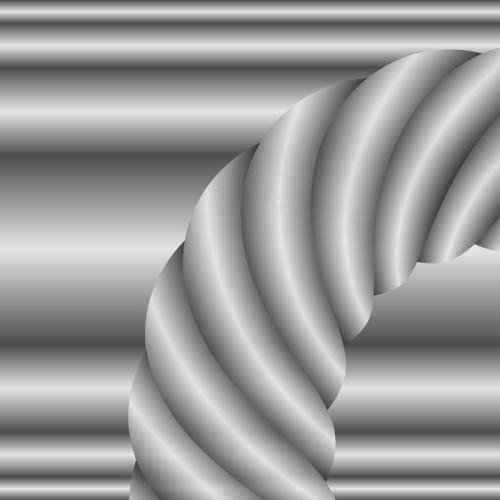
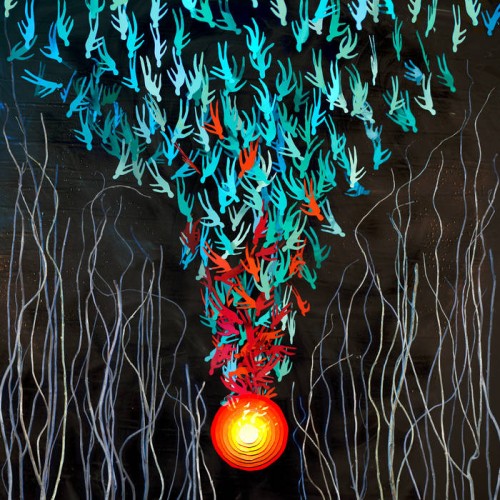

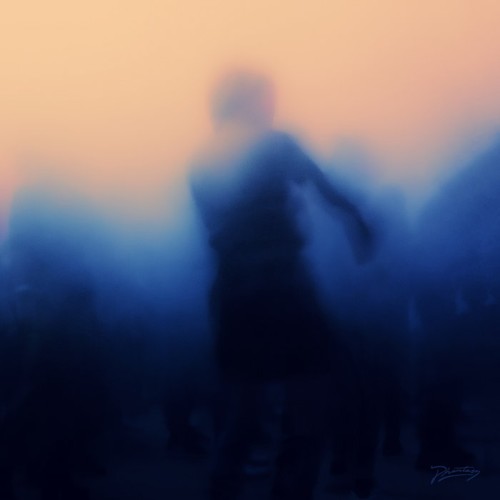

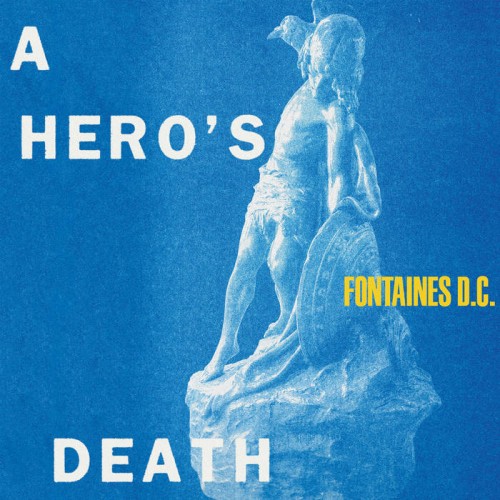
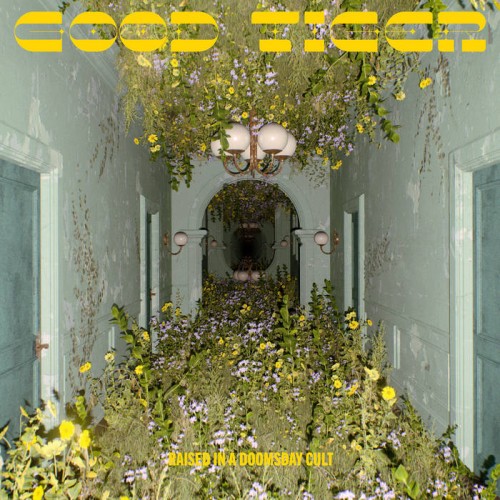
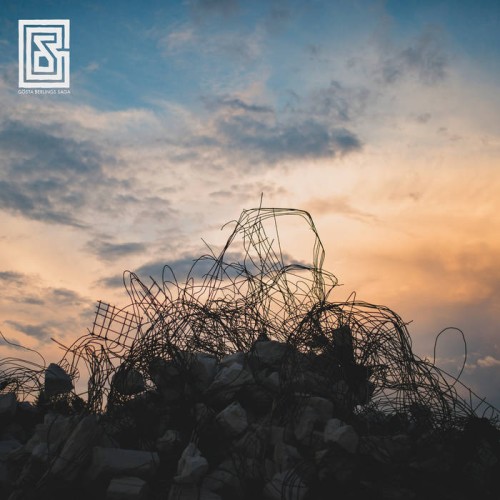

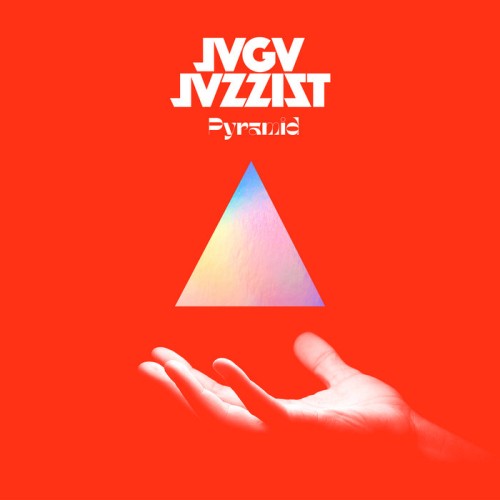
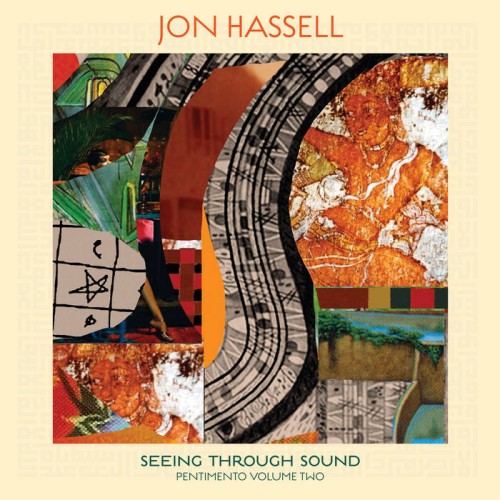
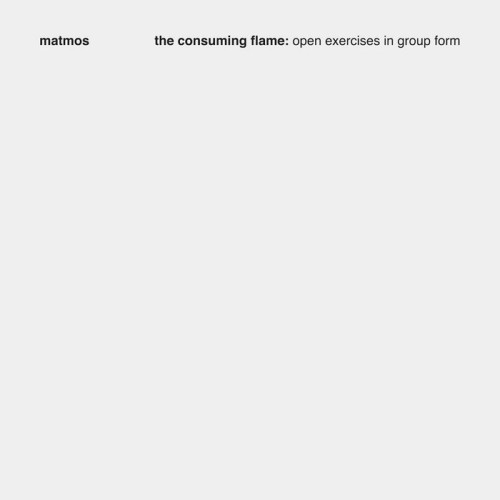

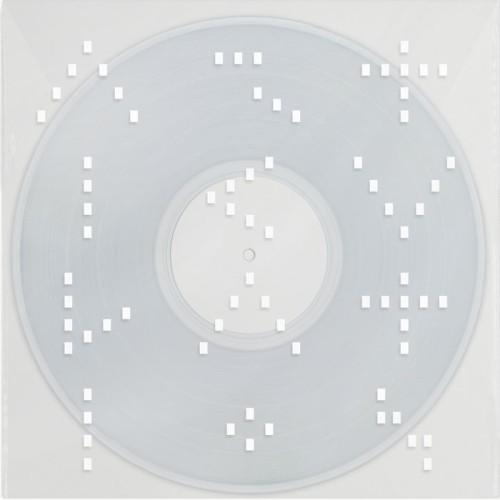
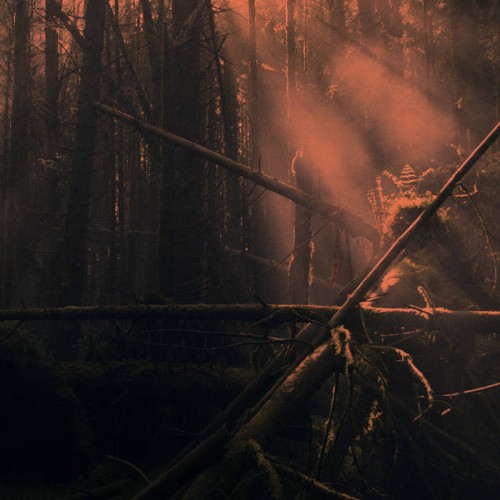
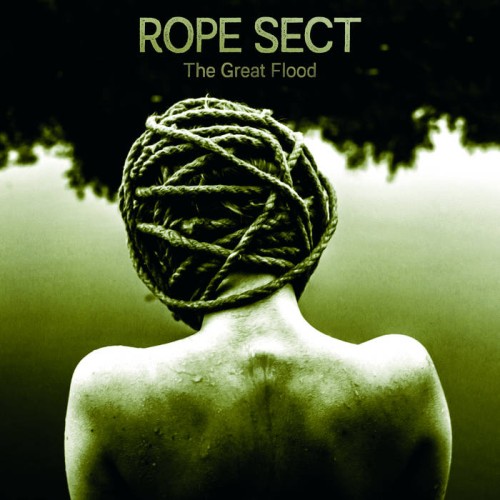
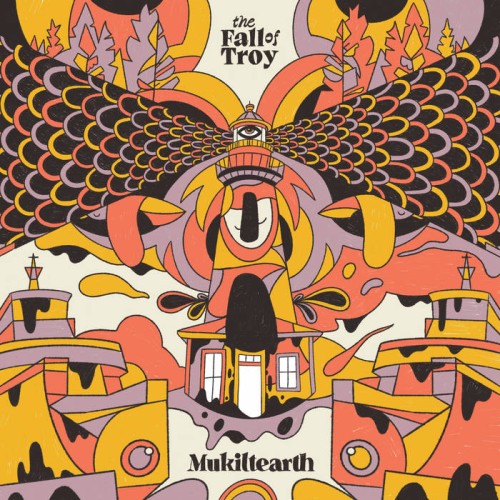
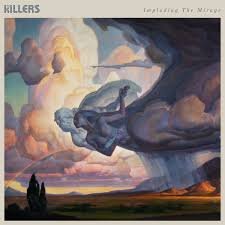
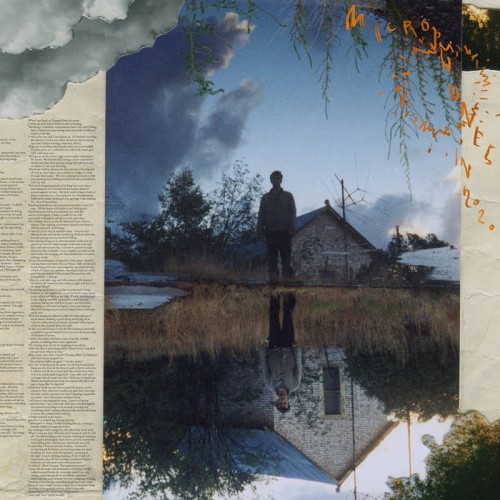
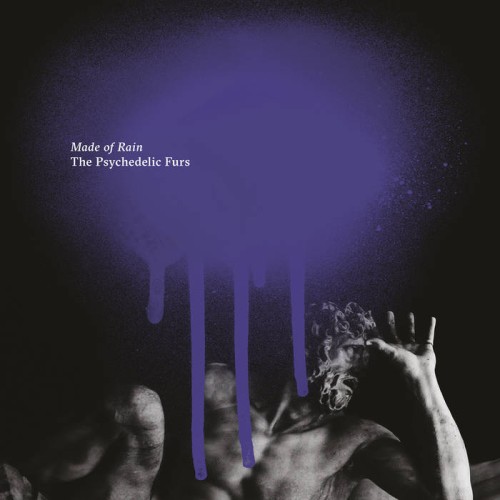



 or,
or,